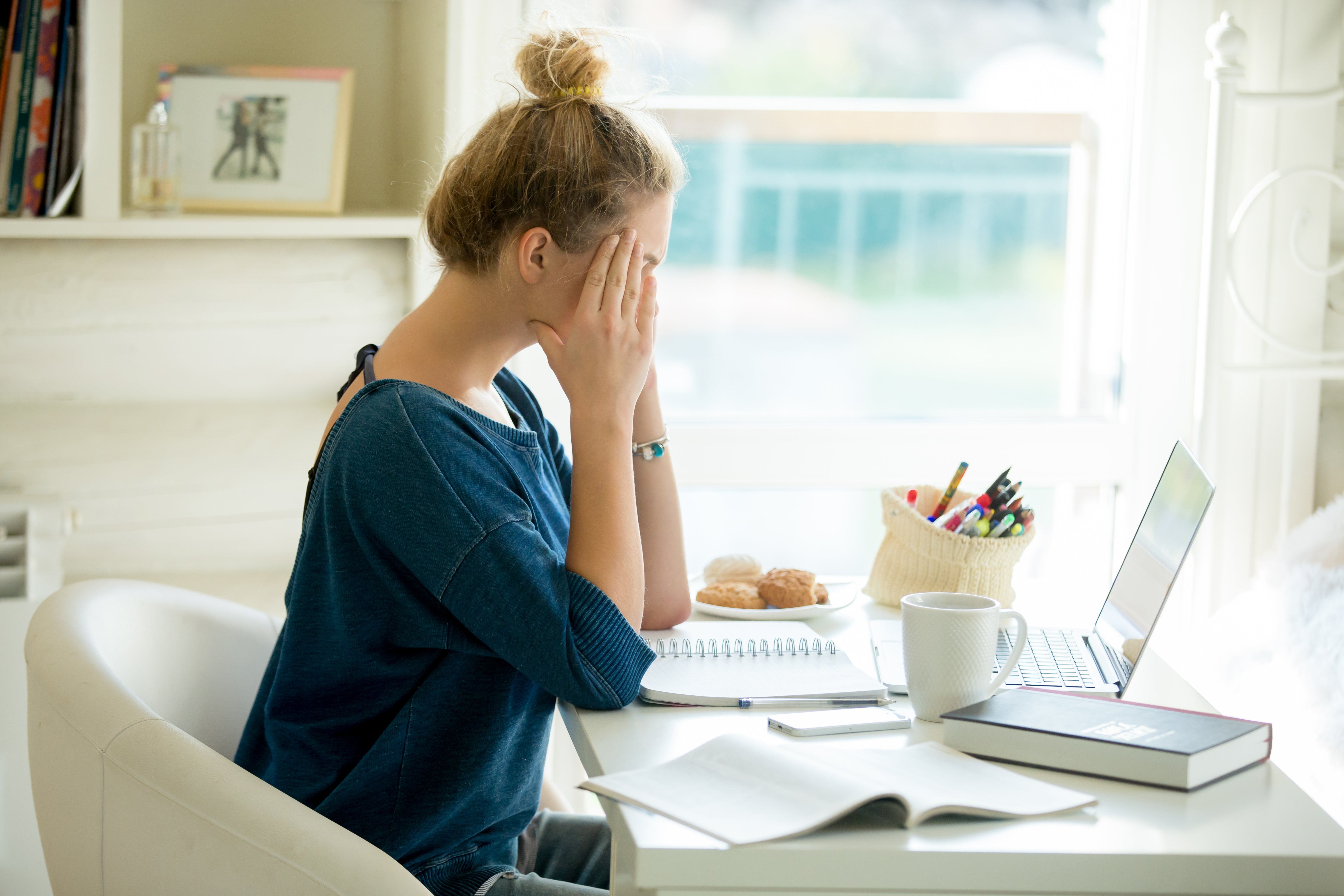Three-quarters of disabled students say wellbeing has worsened since Covid
Almost half of those surveyed have have considered quitting their course, report finds

Your support helps us to tell the story
From reproductive rights to climate change to Big Tech, The Independent is on the ground when the story is developing. Whether it's investigating the financials of Elon Musk's pro-Trump PAC or producing our latest documentary, 'The A Word', which shines a light on the American women fighting for reproductive rights, we know how important it is to parse out the facts from the messaging.
At such a critical moment in US history, we need reporters on the ground. Your donation allows us to keep sending journalists to speak to both sides of the story.
The Independent is trusted by Americans across the entire political spectrum. And unlike many other quality news outlets, we choose not to lock Americans out of our reporting and analysis with paywalls. We believe quality journalism should be available to everyone, paid for by those who can afford it.
Your support makes all the difference.Three in four disabled students say that their mental wellbeing has worsened during the coronavirus pandemic, a new survey has found, highlighting a need for more support through counselling and specialist services.
The report, which polled 1,314 disabled students, also found that 81 per cent of students feel more isolated as a result of Covid-19. The survey was conducted by Randstad Student Support, a provider of support workers to students with disabilities, health conditions or additional learning needs.
The research follows a poll by the National Union of Students (NUS) in December which found that one in two (52 per cent) of students said their mental health had deteriorated or been affected negatively by Covid-19.
Commenting on the findings at the time, Larissa Kennedy, NUS national president, highlighted that Covid-19 “has further entrenched the disadvantage that marginalised groups feel”, calling for targeted support for “students of colour, disabled students, student parents and LGBT+ students”.
The report found that almost half (48 per cent) of disabled students have considered dropping out of their course due to their deteriorating mental health. Seven in 10 students are either experiencing a short-term mental health condition, have been diagnosed with a long-term mental health condition, or believe they may have a condition which has not been diagnosed.
While last year has impacted disabled students across the board, the pandemic appears to have hit some groups particularly hard, with a total of 84 per cent of non-binary students telling researchers that the pandemic has had a negative effect on their mental wellbeing.
Mature students were also more likely to have suffered feelings of isolation, with almost nine in 10 over-50s saying they feel more alone as result of the coronavirus crisis.
Charles Bentham-Wood, director of Randstad Student Support said: “The student mental health epidemic has been growing for years. Covid-19 represents the icing on the cake. Vulnerable students feel isolated and their mental health is suffering. The journey through university is a life changing one; at the moment, unfortunately, too many students are finding it’s not a positive one.”
The report suggests universities offer struggling students more support, with almost two in five (38 per cent) of those considering leaving their course identifying a lack of support as a key factor. In identifying potential solutions, the report includes hiring more student support specialists and expanding counselling services, with a majority (56 per cent) of respondents saying counselling helped them to cope with personal issues.
Disabled postgraduate students were more likely to say they would benefit from more counselling, with two in five saying so compared to one-third of the wider student population.
While the pandemic has presented new challenges for many students, the majority said support was as beneficial when delivered remotely as it was in person, with only 28 per cent saying the opposite.



Join our commenting forum
Join thought-provoking conversations, follow other Independent readers and see their replies
Comments